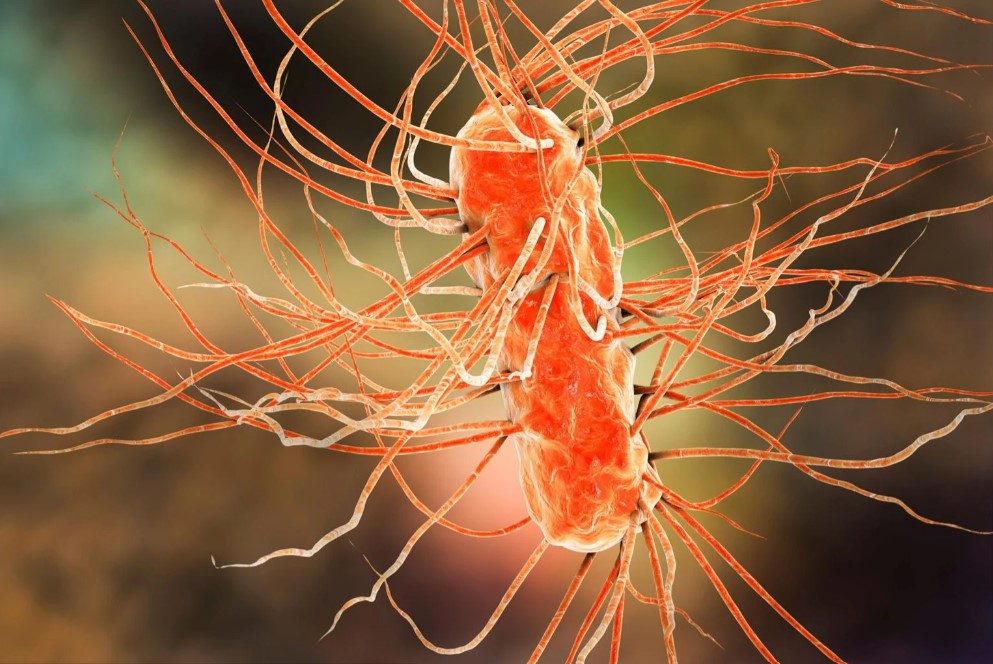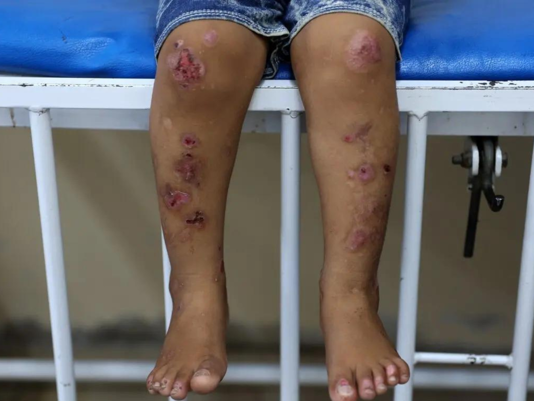
What South Africa’s Fatal Mpox Cases Mean for the Global Crisis
- Health and WellbeingInternational News
- No Comment
- 319

South Africa is ramping up its response against mpox after three people died from the infectious disease in as many weeks this month. But as the country’s government turns to donors to secure potentially lifesaving drugs, health activists ask why such requests are necessary when wealthier countries are sitting on large stockpiles.
Mpox is caused by the monkeypox virus and spreads predominantly by skin-to-skin contact. It was mostly found in East, Central, and West Africa until a global outbreak starting in 2022 generated nearly 98,000 confirmed cases and almost 200 deaths across 117 countries. (Although the World Health Organization recommended in November 2022 that the disease be called “mpox,” the International Committee on the Taxonomy of Viruses still refers to the underlying pathogen as the “monkeypox” virus.)
South Africa recorded five mpox cases in 2022 and none in 2023, according to the country’s health minister, Joe Phaahla. The new bout has yielded 16 confirmed cases from early May to June 25, but the actual number of infections is likely much higher.
“We probably have a few hundred cases that we don’t know about,” says Salim Abdool Karim, a Durban-based epidemiologist who played a leading role in the country’s COVID-19 response. This prediction is safe to assert because none of the current cases have a recent history of travel, meaning that they acquired the virus locally, and do not appear to have infected each other.
Clade 1 versus Clade 2 versus the HIV factor
The severeness of the recent cases—all but one have required hospitalization—also suggests that they are the tip of an iceberg and that many others could be out there with mild disease, says Abdool Karim.
Monkeypox virus comes in two clades, or ancestral groups. Clade 1 was previously thought to be more transmissible and to cause more severe infections. The 2022 outbreak, however, changed views on how Clade 2 spreads because it was easily transmitted via sex. This subsequent disease remained largely nonlethal, generating a case fatality rate of 0.19%.
These distinctions—between ease of spread and severity—raise questions about South Africa’s new outbreak. This virus seems to be spreading chiefly between men who have sex with men. Early genetic analysis spotted Clade 2 but only involved the first three nonfatal cases. Genetic analysis hasn’t been reported for the three fatalities.
Separately, since 2022, an mpox outbreak has expanded geographically and intensified in Democratic Republic of Congo (DRC), where a Clade 1 version of the virus has long been endemic. From January 2023 to late May 2024, DRC recorded 22,477 cases and 1,038 deaths.
That’s a case fatality rate of 4.6%—or 24 times higher than what’s been seen during the global outbreak of Clade 2. The DRC outbreak also documented the first known instance of sexually transmitted Clade 1 in April 2023.
“South Africa is not the big problem currently—that is the DRC,” says Tulio de Oliveira, who heads up the Centre for Epidemic Response and Innovation in Stellenbosch, South Africa. It’s not a matter of whether Clade 1 will spread, but when, he notes.
In April, African health ministers met in DRC and agreed to step up cross-border surveillance, and to coordinate the supply of diagnostics, vaccines, and therapeutics. Last week, the African Centres for Disease Control and Prevention called for “swift and urgent action” to improve Africa’s access. “An mpox outbreak anywhere is a threat everywhere,” said its director-general Jean Kaseya in a statement.
All of South Africa’s recent cases were immunocompromised, mainly due to untreated HIV—which Abdool Karim says could explain the severity of their disease. South Africa’s significant HIV burden, he adds, increases the likelihood of seeing severe mpox cases and fatalities.
The country has nearly 8 million people living with HIV. A quarter of them are not on treatment, and men are more likely not to have started treatment than women. As a result, mpox fatalities might be higher in South Africa than in a population with a lower HIV burden, Abdool Karim says.
Why South Africa Can’t Access Mpox Drugs and Vaccines
Antiviral drugs can shorten the duration of mpox illness and reduce the chance of dying, whereas vaccines can be given before or after exposure to break chains of infection. But neither tecovirimat, the antiviral drug used to treat mpox, nor mpox vaccines are currently registered by South Africa’s health products agency, meaning that they can only be imported and administered under special emergency licenses tied to an active outbreak.
South Africa was able to obtain doses of the antiviral to treat its severe cases under compassionate use legislation. As of June 20, however, the country was still waiting to receive donated vials of Jynneos, the vaccine used widely in high-income countries in the Global North in 2022.
Health Minister Phaahla has confirmed that donations are being arranged from global stockpiles, but that it could be “days or weeks” before they land in South Africa. The vaccines will prioritize four at-risk groups: men who have sex with men, sex workers, lab workers, and health workers.
Health activists have called out the situation in South Africa as yet another instance of health imperialism, when patients in developing countries struggle to access treatments that are readily available in the Global North. Negotiations for a global treaty to address such inequalities stalled last month, even as Africans and others complained that its content had been watered down to the detriment of the Global South.
“South Africa is experiencing local transmission and still does not have mpox vaccines while every gay and bi man I know in Ireland has two shots,” says Robbie Lawlor, an HIV activist based in Dublin, Ireland.
Multiple studies reported the vaccines to be effective during the 2022 outbreak, though some evidence suggests the gains were partially attributable to behavior changes around seeking health care and avoiding high-risk sexual encounters. But even if that is the case, Lawlor believes it is unfair to expect South African gay and bisexual men to rely on behavior changes for long-term suppression of an outbreak when their peers in Europe and North America have access to a range of options.
“Behavioral change, especially around sex, wanes over time,” he says. “It can’t be the only prevention method.”
Bavarian Nordic, the company that produces Jynneos, says it is “working hard” to to get its vaccines into Africa. Earlier this month, Gavi, the vaccine alliance, announced that it will oversee the creation of a global mpox vaccine stockpile that can be distributed to ongoing outbreaks in countries that don’t have their own stocks.
Mpox has not been eradicated in the Global North, de Oliveira says, evidenced by a resurgence in New York City reported earlier this month and increasing cases in California. He adds that unless mpox in Africa is given the same kind of urgent attention that the global 2022 outbreak received, he suspects history will repeat itself.
“It’s the famous trick of the ostrich—you put your head in the sand because you don’t want to see the problem coming,” de Oliveira says.
By Linda Nordling
https://www.thinkglobalhealth.org/article/what-south-africas-fatal-mpox-cases-mean-global-crisis




